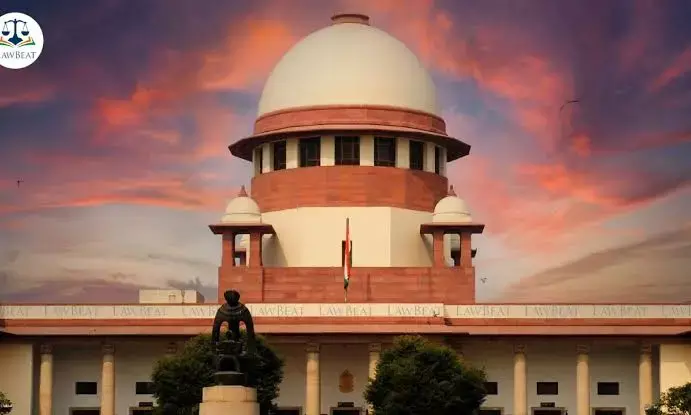Supreme Court Rules Same Bench Cannot Decide Both Writ Petition and Writ Appeal

Supreme Court bench of Justices Ahsanuddin Amanullah and S V N Bhatti restores writ petition for fresh hearing
The Supreme Court of India has on September 3, 2025 held that it is impermissible in law for the same bench of a High Court to decide both a writ petition and a writ appeal arising from refusal of interim relief in that writ petition. The top court termed such a course of action a “grave irregularity” and restored the writ petition to its original number for fresh hearing before an appropriate bench.
A bench of Justices Ahsanuddin Amanullah and S V N Bhatti set aside the October 3, 2024 judgment of the Telangana High Court division bench, which had simultaneously heard and disposed of a writ petition along with a writ appeal against the refusal of stay or interim relief.
Background of the Case
The matter arose from proceedings initiated by Andhra Pradesh Grameen Vikas Bank. The bank challenged the validity of the High Court’s judgment whereby a writ petition filed by two individuals, V. Yugandar and T. Praveen, had been taken up for hearing by the same division bench during the consideration of a writ appeal.
The appeal before the Supreme Court was directed against the decision of the High Court to not only hear the appeal against refusal of interim stay, but also to call for and dispose of the main writ petition itself, despite it never being before the bench at that stage.
Appellant’s Submissions
Counsel appearing for the bank contended that the procedure adopted by the High Court violated both judicial propriety and the administrative powers of the Chief Justice of the High Court.
The appellant stressed that:
1. The writ appeal concerned only the refusal to grant interim relief, and its scope could not have been expanded to include adjudication on the merits of the main writ petition.
2. The division bench was not competent to call for the writ petition on its own motion. Only the Chief Justice of the High Court is vested with the power to assign matters to benches.
3. The same bench hearing both the writ petition and the writ appeal arising from its own order was impermissible in law, creating a conflict with basic judicial norms.
Respondents’ Position
The counsel for the respondents, while unable to dispute the factual irregularities highlighted, urged the Supreme Court to protect their interests given the passage of time and pendency of the dispute.
Supreme Court’s Findings
After examining the submissions, the bench found serious flaws in the procedure adopted by the Telangana High Court. The judgment records:
• The writ petition was never listed before the division bench, and hence could not have been called for hearing in the writ appeal.
• By deciding both the writ petition and the writ appeal together, the High Court bench acted contrary to “the very basic principles of judicial norms and propriety.”
• Such a practice amounted to a grave irregularity, undermining the system of bench allocation by the Chief Justice.
The Supreme Court categorically held that it is impermissible in law for the same court to decide both the original writ petition and an intra-court writ appeal arising from that petition.
Directions Issued
Allowing the appeal, the Supreme Court set aside the impugned judgment and restored the writ petition to its original file and number. The court clarified that:
• Parties are at liberty to approach the Chief Justice of the Telangana High Court to seek assignment of the writ petition to a proper bench.
• The writ petition shall now be considered afresh in accordance with law, after hearing the concerned parties.
• Subject to the outcome of the writ petition, the parties will have the right to avail remedies available under law.
• The Supreme Court refrained from expressing any opinion on the merits of the underlying dispute.
Case Title: Andhra Pradesh Grameen Vikas Bank vs Union of India and Others
Judgment Date: September 3, 2025
Bench: Justices Ahsanuddin Amanullah and S V N Bhatti
